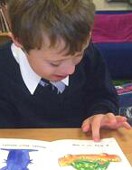This account by Michiko Tabata of the Japanese Federation of the Blind is taken from the current EBU newsletter (European Blind Union)
To receive the newsletter, This email address is being protected from spambots. You need JavaScript enabled to view it..
One year after the earthquake in Japan
I just came back from the commemoration symposium in Sendai. There was a dinner yesterday featuring a number of important figures including task force members who have been visiting the blind individuals affected by the disasters. Everyone had a chance to speak a little so I told the group that the world and the international blindness community have been very supportive of the work of the task force.
We had plenary sessions the whole day today. In the financial report the person in charge introduced to the audience some generous financial support from outside Japan and the spirit of solidarity and friendship. The reaction from the floor was something like "How Nice!" or "How generous!" I was fortunate to be sitting next to an 82-year-old blind woman from Fukushima and her daughter, who were also enchanted by the support from our overseas friends, because I could tell them more about your support and assistance. The daughter told me how grateful they are to have support from outside Japan, and that she would not have learnt about it if they had not come to the event. They are so humble.
Everyone I talked to fully agreed that the experiences must be used for the future mitigation, if not prevention, of tragedies and impact of devastation, inside and outside Japan. This blind woman and her daughter changed evacuation centres 6 times. They are now in temporary housing. They stressed the hardship experienced by the blind mother when having to cope with a new environment so many times. The mother often tells her daughter she wants to go back to their home in Fukushima not far from the nuclear plant, which is not allowed because of high radiation. The daughter made very brief visits a few times to pick up valuables, but the house is now occupied by 30 pigs which were abandoned by a nearby farm because of the tsunami. This family suffered from all the three disasters, like many others.
There was also a partially sighted younger woman also with multiple sclerosis, which means she has problems with her arms and legs as well. While in the evacuation centre, people around accused her "of doing nothing while everyone else is working hard" or "moving the mouth constantly without doing anything with the legs and the arms". She decided to leave the centre and went home with her husband, but once out of the centre, relief goods rarely reach individual households.
A blind man from Fukushima had flood water come up to his chest. He was holding on to a steel pole with his right arm and his guide dog with his left arm. Someone saw the light coloured head of the dog and realized there was someone in need of rescue. Another blind man needs dialysis. When petrol was in short supply, the service station would not fuel his family's car on his way to the hospital because they "want to save petrol for emergency vehicles". He asked his doctor for a document, after which the SS would fuel the car. Unfortunately, such things do happen in extreme circumstances, in Japan and probably anywhere around the world. But then there are also people who do unbelievable things to help others.
We are preparing 2 "manuals" for disaster management. One is for blindness organizations, on advocacy, awareness raising etc. Another is for support groups, what would be the biggest challenges, what would be most desperately needed etc. We hope to have them available in English, and I hope there will be some resources for translation as the volume is huge and I don't think I can do that. Our country often goes into too many precise details so maybe some parts are not relevant for you, but I am sure other parts will be good references when you think of your own country or organization.
On my way back to Tokyo I was in the latest Shinkansen car model, which was introduced quite recently, maybe after the earthquake; peppermint green and white with a raspberry pink line. I suppose Tohoku is moving forward. This will be my last account on issues related to our disasters last year, to be circulated in this way, unless there is some remarkable development. I thank every one of you who has been concerned about our peoples from the beginning. We will never forget your kindness and friendship as long as we live.
Looking forward to seeing you again soon with big smiles.


 Landmark research study shows targeted intervention improves the reading and language skills of children with Down syndrome
Landmark research study shows targeted intervention improves the reading and language skills of children with Down syndrome